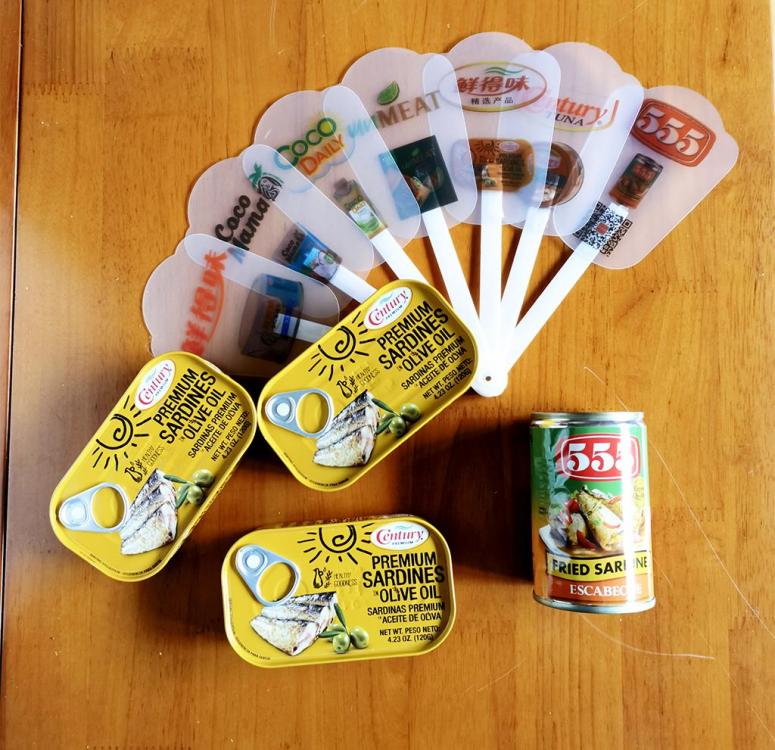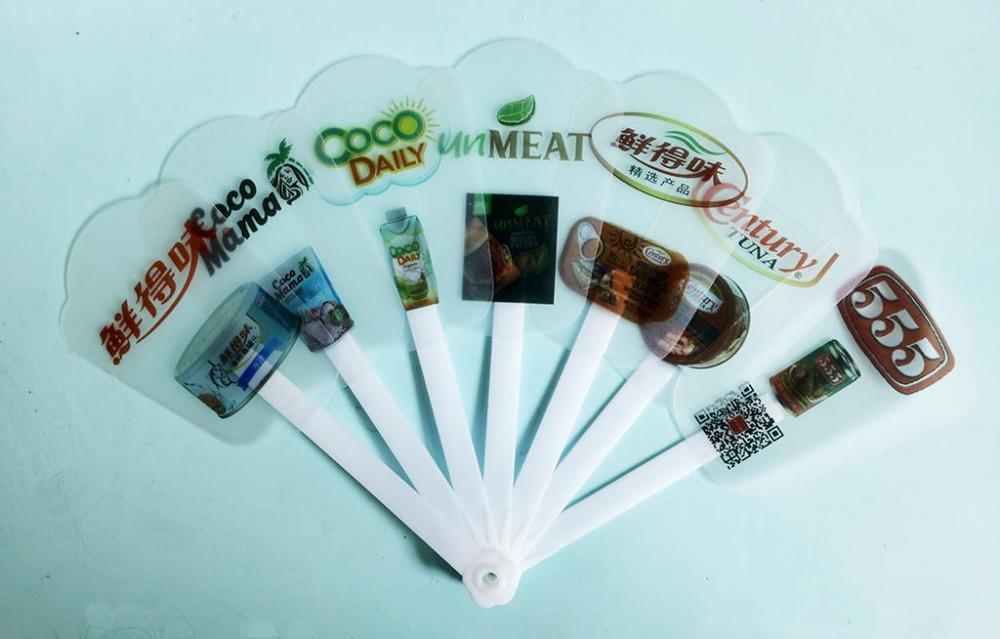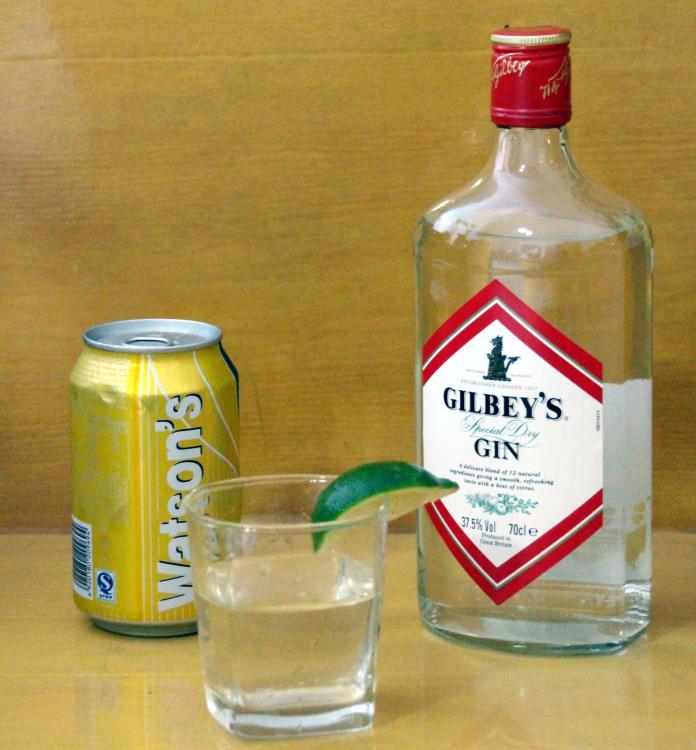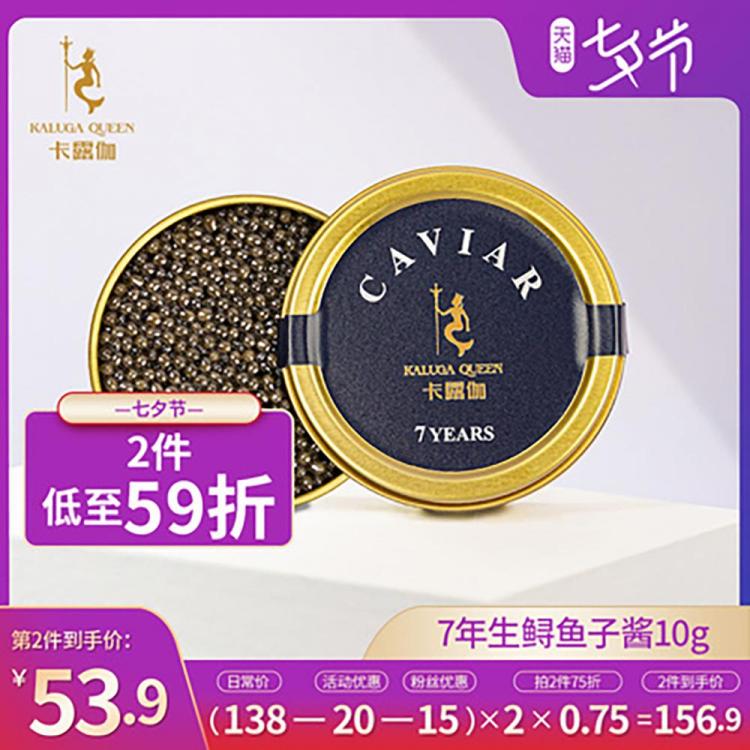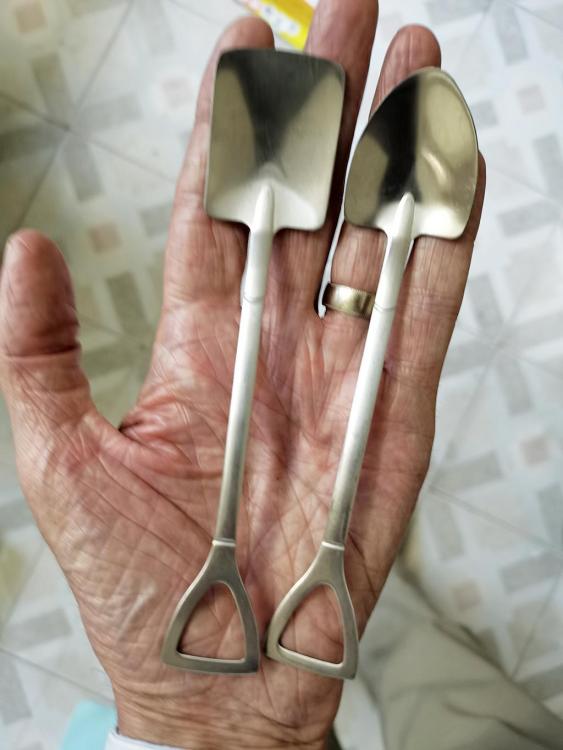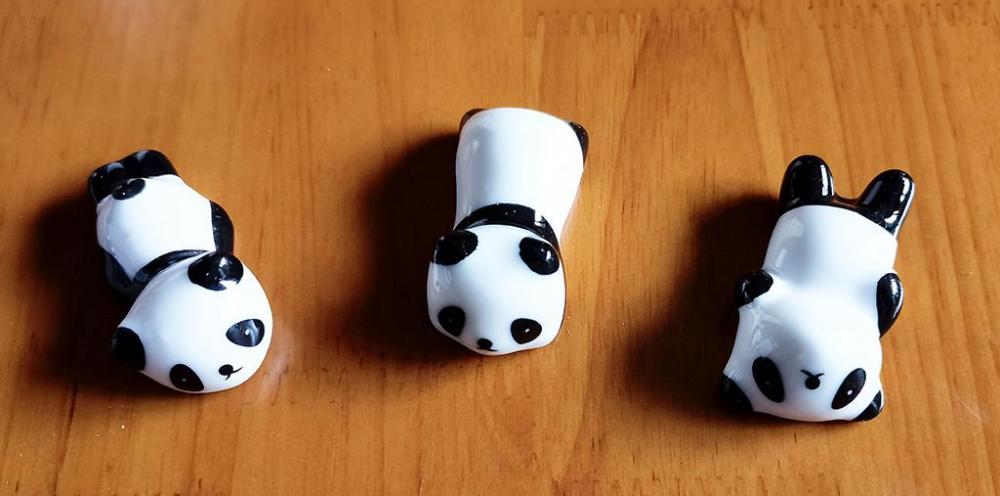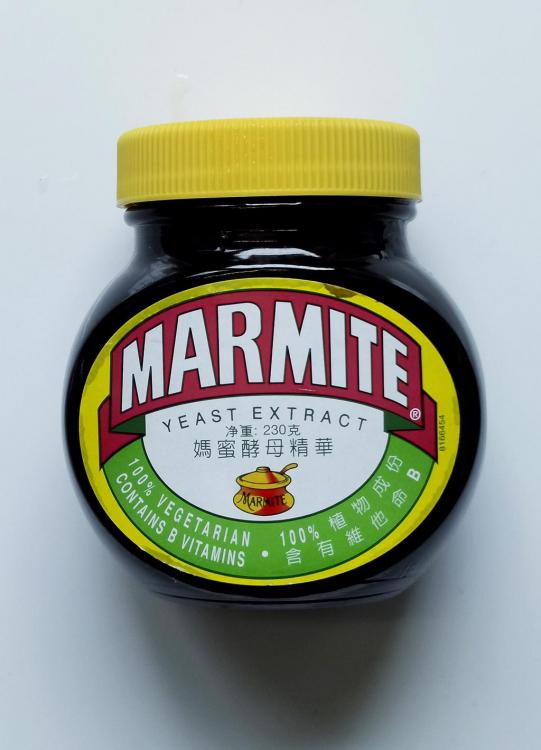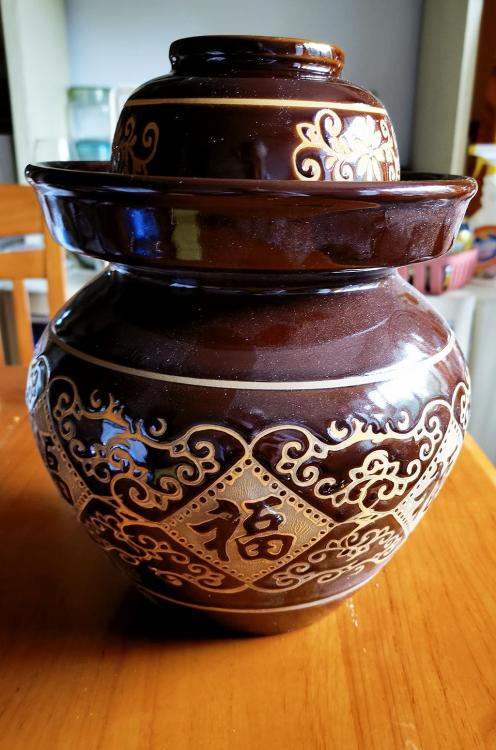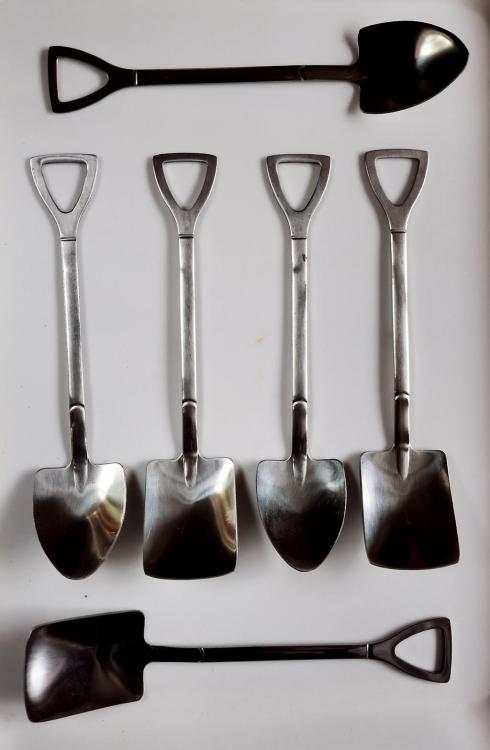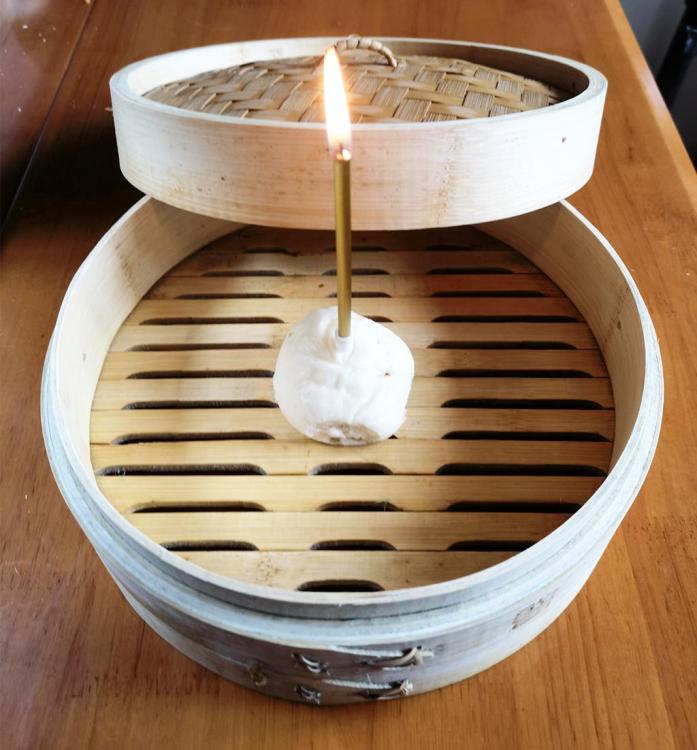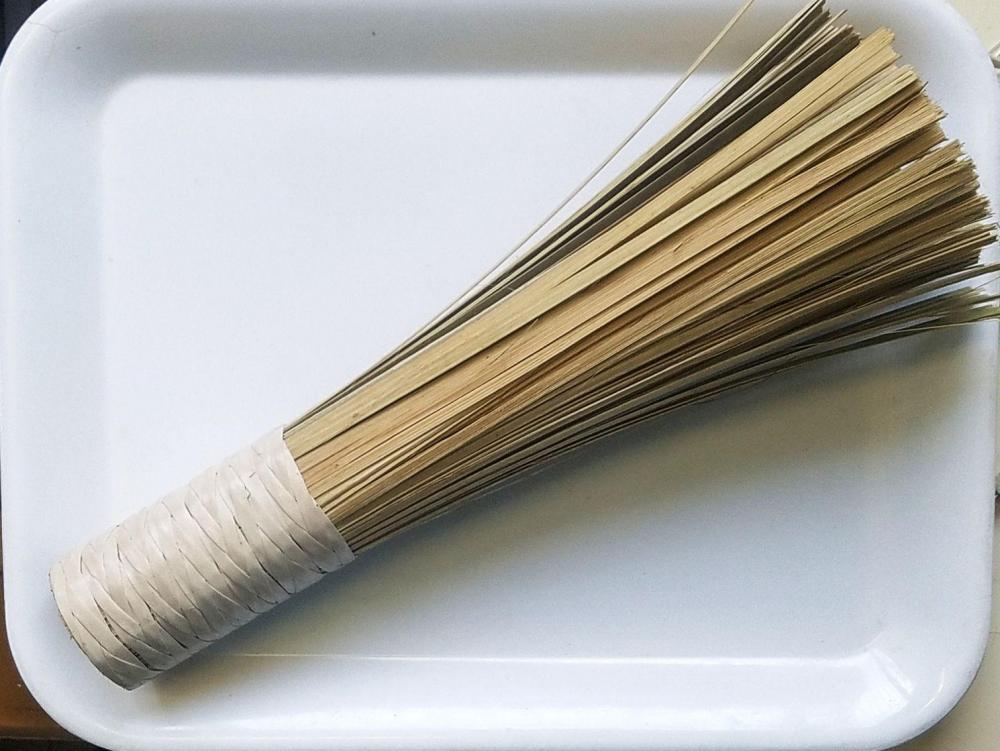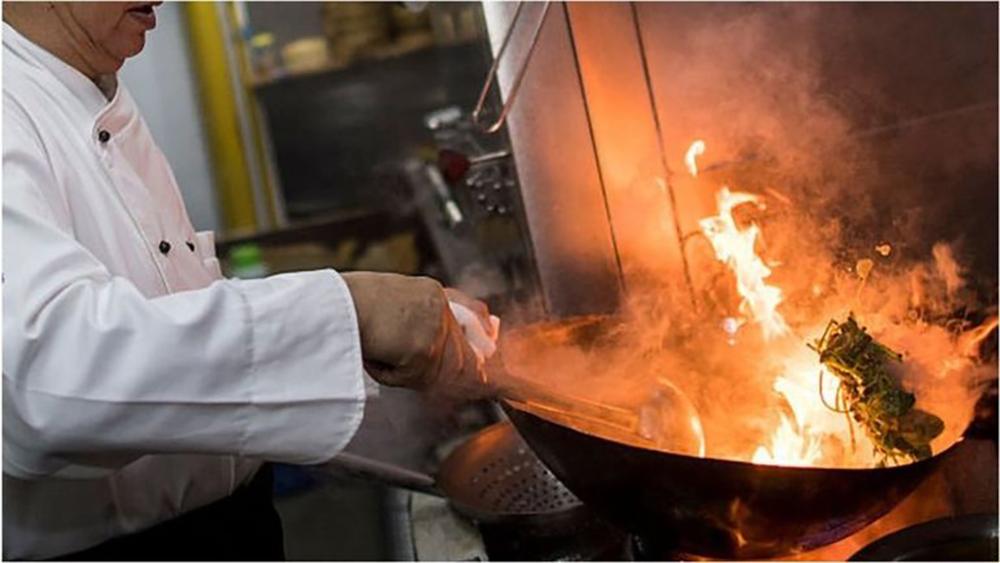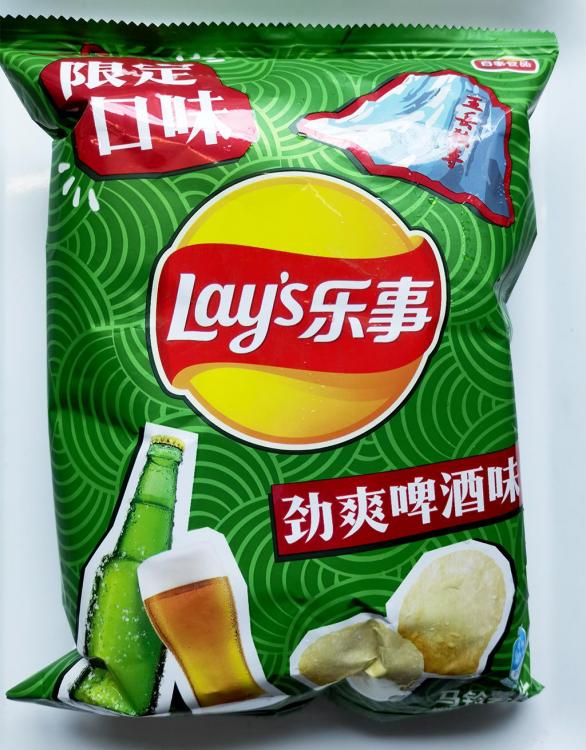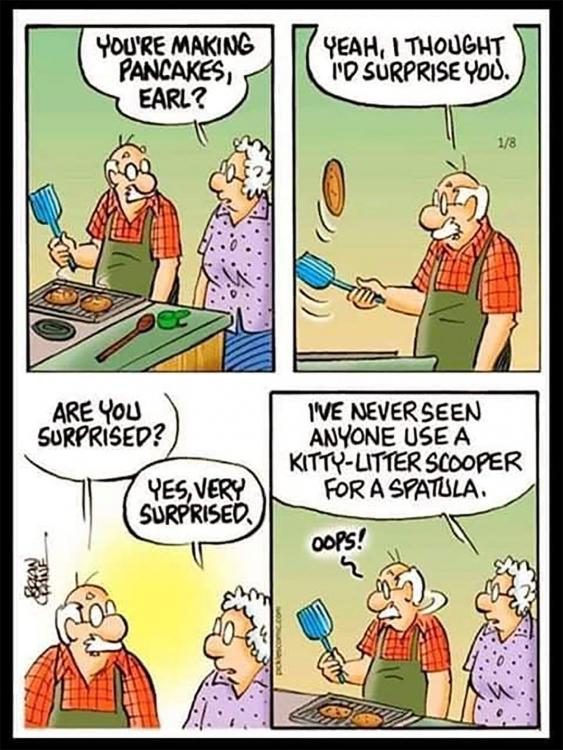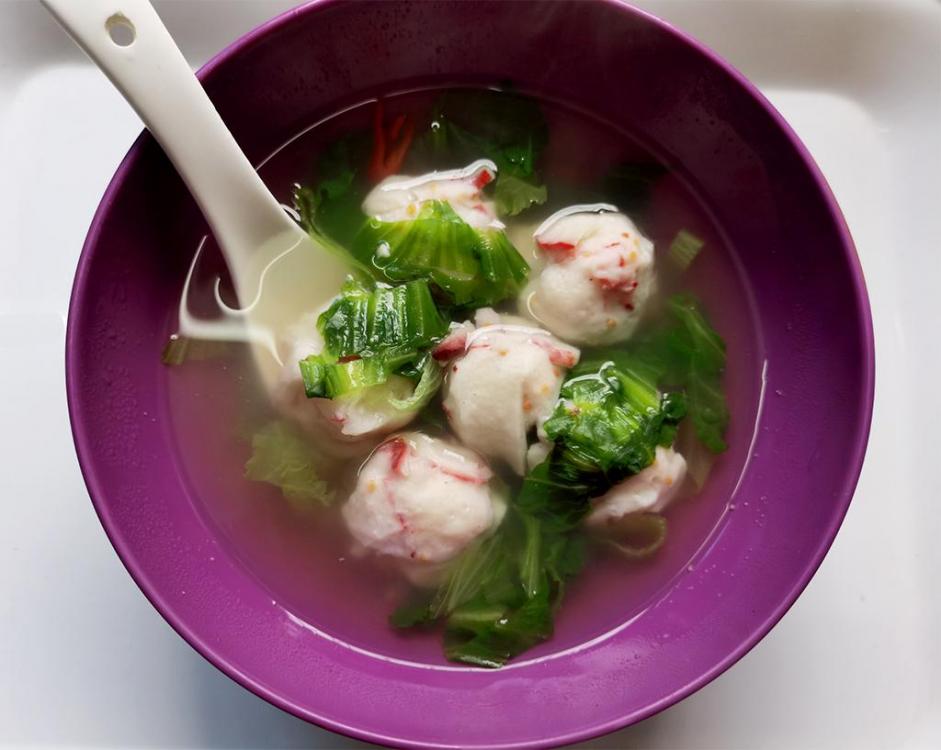-
Posts
16,813 -
Joined
-
Last visited
Content Type
Profiles
Forums
Store
Help Articles
Everything posted by liuzhou
-
Today's scant delivery brought these Portuguese sardines which I've been looking forward to. However, I guess they're not much fun, really. What amused me was that they came with a "free" gift of a can of Filipino fried sardine escabeche (why?) and a plastic fan advertising a load of stuff they also sell. Nothing I want there, except I always wanted a fishy, plastic fan!
-
Information we all need! Should be taught in junior school!
-
I like rhubarb a lot, but can't imagine it with gin. The lemon one immediately under must be interesting, too. But I have no chance of finding either here, I suspect.
-
In 1980, the BBC broadcasted a play about a time traveller from the future visiting 1980s London. It was called The Flipside of Dominick Hide. In the play, the lead character adopts the pseudonym "Gilbey", after having seen a bottle in a pub. For some unknown reason, that stuck in my memory and, 40 years later, I saw a bottle in a supermarket here in China, so I bought it. It was OK, but nothing special. My preference is for Tanqueray, but I recently sampled a Scottish gin called The Botanist, which was rather good, so I may switch my allegience. I mentioned that gin here. I'm not sure why someone would say Bombay Sapphire is a bad choice. It's fine. In recent years, there has been an explosion in so-called craft beers and people do sometimes get rather snooty about their gin, making stupid claims that their choice, no doubt hand-crafted by six nuns up a mountain in Patagonia, is the only one worth opening. Ignore them and enjoy what YOU like.
-
-
-
Much as it would amuse me to declare @KennethTthe winner, it can't be done. (By the way, I deliberataly didn't indicate scale. Didn't want to to limit anyone's imaginative musings!) @ElsieDI'm sorry, but no. They are a bit larger than teaspoons. @ShelbyYou could try, but you'd be there for days! @paloAn incorrect statement. @blue_dolphinis correct. They are sold as watermelon spoons, but could easily work for ice cream, too. Or yoghurt, etc.
-
Nope. No connection to any other purchase.
-
I have trouble finding my favourite flavour. Potato!
-
Perhaps not.
-
Unusually, I tried them. Curiosity got the better of me. They weren't bad, but I couldn't detect any beer flavour, stale, fresh or refreshing. I certainly wouldn't buy them again, though.
-
Fun on-line shopping deliveries this afternoon. Panda Chopstick Rests. I like that they are different poses! A new Sichuan pickle jar Instant Heavenly Happiness in a Jar I'll let you guess what these spades/shovels are intended for. It is culinary.
-
- 44 replies
-
- 16
-

-

-
I think you need to learn how woks work. For a start, the heat is appled to the bottom of the wok, meaning that is the hottest. The side walls are intentionally cooler. That is one reason for stirring - so that the food passes through the hottest part, then when almost done is pushed to the side to keep warm while faster cooking ingredients are added in the centre. If you are worried (unnecessarily, I would say) about the sides being too thin, then go for a cast iron wok instead. That is what I use, but then I use it for nearly all my cooking, three times a day, every day. The advantages are that they last longer (I've had my current one for about 10 years) and take a higher heat. The disadvantages are that they are heavier. To use any wok, the empty wok is heated until smoking hot, then the cold oil is added - it wil be sizzling hot immediately, then add the slowest cooking ingredients. Yes, the temperature will drop slightly. You'll be glad. Food being cooked at a lower temperature is not going to be your problem. Burning it is, so keep that food moving! Oh No! The temperature is falling! As @KennethThas said they are easy to clean. Cold water and a wire scrubber does the trick. No cloths or towels involved. Put it back on the stove over a high flame and it will be bone dry in seconds. You could, if you wanted, invest next to nothing in a traditional wok brush. They need replacing quite often though. Wok Brush There are many videos on the internet demonstrating how to stir-fry in a wok. I'd ignore the recipes, but you can see the techniques used. That has already been established!
-
What to eat with a beer? Refreshing beer flavoured chips/crisps of course! 劲爽啤酒味 (jìn shuǎng pí jiǔ wèi) = Strong Beer Flavour.
-
I can't speak for @KennethT, but I use mine for almost all my cooking. Not just Asian. French, Italian, American and more. I doubt you could find a more versatile pan. I use mine for frying, steaming, braising, smoking, poaching and more. I cooked my breakfast, lunch and dinner in my wok today. Dinner was fish and chips - all cooked in the wok.
-
OK. Tomorrow, I'll tell the Chinese population they're stir trying all wrong. You asked about stir frying! What you are now trying to describe isn't stir frying!
-
What? That's why we call it stir-frying. We stir it! Yes, if you just chuck in the chicken and walk away, it won't work! That won't work in a skillet either! I admire your imaginative powers, though!
-
Well, what you have read is largely nonsense. Over a billion people are right now cooking dinner in woks on non-commercial-grade stoves. See here. Woks were invented for stir-frying centuries ago. And today, many (most) come with slightly flattened bases, so that they can be used on convection cookers. I'll grant they don't do so well on traditional electric stoves, but what does? What makes you think you can do chicken parm in a skillet but not in a wok?
-
Solved. Back in May, an ex-student of mine who graduated in 2006 with her BA in English tucked under her belt, contacted me to ask for help. She is now a high school English teacher in Nanning, the provincial capital. She had been charged with getting her students to come up with a short play (more of a sketch) to explain something about Chinese culture to ignorant foreigners. Well, that wasn't how they put it, of course. They were running some kind of competition across Guangxi's high schools. So, she asked if I would mind recording a short selfie-video (is there a word for that?), in English, on my experience of 螺蛳粉 (luó sī fěn), my city's iconic noodle dish. I consulted my lawyers, personal trainer, fortune teller, and life-style consultants and they couldn't come up with any justifiable objection. So, I complied. Apparently, her class (and she) won the Nanning heat, then went on to get the bronze medal in the Guangxi-wide final. So, she called her family in Baise, her hometown, and asked them to send me the mangoes as a 'thank-you'. She was able to see the delivery tracking information on-line and knew I had received them, so contacted me this morning to confess! I let her off with a caution! Her given name is 海燕 (hǎi yàn - pronounced like 'high yen' ), which means 'petrel', as in the seabird. Not a Chinese word I would have expected to learn, but she told me one day and it lodged in my brain. In fact, it's possibly the only non-edible bird name I know in Chinese. Of course, tomorrow, I'll find out that someone eats them!
- 667 replies
-
- 10
-

-

-



